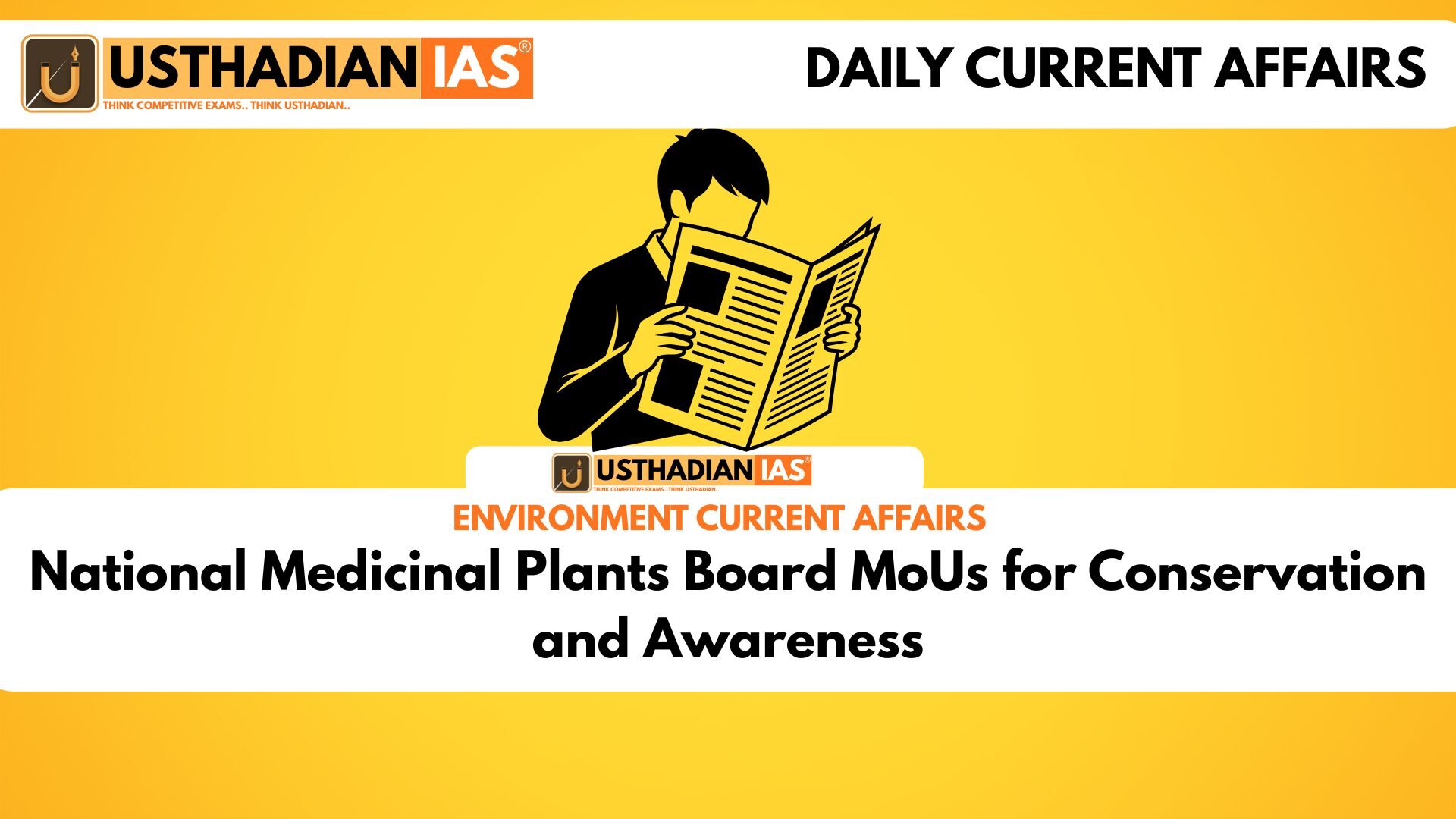NMPB signs key MoUs for conservation
National Medicinal Plants Board MoUs for Conservation and Awareness: The National Medicinal Plants Board (NMPB) has signed two strategic Memorandums of Understanding (MoUs) aimed at the conservation of threatened medicinal plants. One of the MoUs focuses on preserving the germplasm of these plants, which are vital to India’s traditional healthcare systems.
The second MoU is centered around the establishment of a National Medicinal Plants Garden at AIIMS, New Delhi. This initiative is expected to become a national model for awareness, education, and preservation of medicinal flora.
About the National Medicinal Plants Board
The NMPB was established in 2000 under the Ministry of AYUSH, Government of India. It works as a central agency to coordinate policy implementation related to the development of the medicinal plants sector.
Its key aim is to integrate medicinal plant resources into mainstream healthcare through sustainable management and public involvement.
Key functions of NMPB
NMPB plays a vital role in in-situ and ex-situ conservation of medicinal and aromatic plant species. It actively promotes the augmentation of local flora, particularly those with therapeutic value.
One major initiative includes promoting Home Herbal Gardens and School Herbal Gardens. These projects help raise awareness at the grassroots level and make traditional health knowledge more accessible.
Research and development is another major focus. The board supports scientific studies to validate traditional claims and explore new uses of medicinal plants.
Quality assurance and standardization
NMPB also works toward ensuring the quality and standardization of medicinal plants through various support mechanisms. A major area of support is the Good Agricultural and Collection Practices (GACPs).
The board assists farmers and collectors in adopting these certified practices, ensuring quality and sustainability in the medicinal plant supply chain.
Static GK fact: GACPs are officially recommended by the World Health Organization (WHO) for ensuring the safety, quality, and efficacy of herbal materials.
Certification of raw materials and seeds
One of NMPB’s ongoing objectives is to certify the quality of raw drugs, seeds, and planting materials. By doing this, it strengthens the value chain of medicinal plants and supports the growth of the AYUSH industry.
Static GK Tip: India is home to over 7,500 species of medicinal plants, and nearly 80% of Ayurvedic medicines are plant-based.
Static Usthadian Current Affairs Table
National Medicinal Plants Board MoUs for Conservation and Awareness:
| Topic | Detail |
| Establishment Year | 2000 |
| Parent Ministry | Ministry of AYUSH |
| Recent Initiative | MoUs for germplasm preservation and garden at AIIMS |
| Main Objective | Development of medicinal plants sector |
| Conservation Methods | In-situ & ex-situ |
| Awareness Campaigns | Home and School Herbal Gardens |
| Quality Standards | GACPs (Good Agricultural and Collection Practices) |
| Certification Work | Raw drugs, seeds, planting material |
| Partner Institution | AIIMS, New Delhi |
| Medicinal Plant Usage | 80% of Ayurveda medicines use plant-based ingredients |








